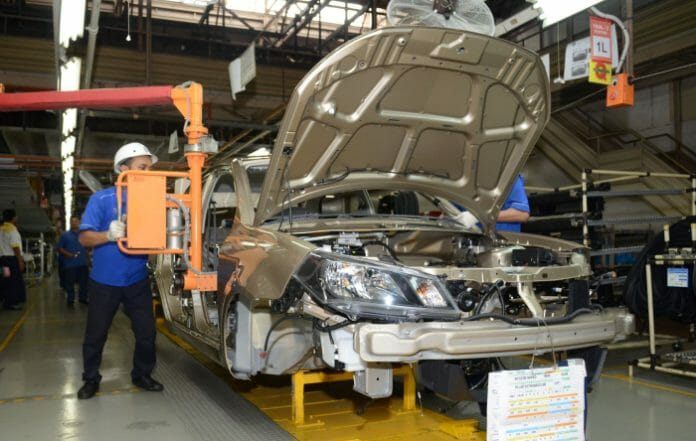The conversations surrounding the consequences of Artificial Intelligence (AI) for jobs, productivity and quality of life are in full swing. AI is not merely a future concept but a present reality shaping our workplaces. As its remarkable capabilities become increasingly integrated into professional environments, understanding its impact on employees’ work and lives becomes crucial.
In this context, a first of a kind study in the ASEAN region was conducted by a team at the Asia School of Business (ASB) in Kuala Lumpur, a higher education institution in collaboration with Bank Negara Malaysia and MIT Sloan School of Management. The researchers set out to measure AI’s impact on work-life balance, job security, and job satisfaction among employees in various industries. Supported by Assistant Professor, Dr. Yi-Ren Wang, the study employed a comprehensive survey-based research approach, gathering data from a diverse sample of 124 professionals across different sectors in Malaysia. The study’s participants were drawn from various industries, including technology, finance, healthcare, manufacturing, and services. The sample included employees at different levels, from entry-level positions to top-level executives. The survey consisted of questions related to their use of AI in the workplace, perceptions of work-life balance, job security, and overall job satisfaction, all rated on a five-point Likert response scale.
Research Findings: AI Users Reported Better Work-Life Balance and Lower Job Insecurity, Compared to Non-AI-Users
Results based on independent sample T-tests revealed that employees who adopted AI at work reported a significantly higher level of work-life balance. Surprisingly and pleasantly, we also found that employees using AI reported a significantly lower level of job insecurity. Intriguingly, we found that this trend is even more pronounced among individuals at a higher seniority level. However, the study did not find a significant impact on job satisfaction among AI users compared to non-AI users.
While 54% of the 124 professionals surveyed reported regular use of AI in their roles, this advancement doesn’t come without its concerns. The question of data security and potential leakage is one that many companies, including those in Malaysia, are contending with as they navigate this new technological landscape. Despite these concerns, the evidence suggests that AI implementation can significantly enhance work-life balance and decrease job insecurity, particularly for senior professionals. These benefits provide a counterpoint to the challenges, underscoring the complex and multifaceted impact of AI on the modern workplace.
A 2022 study by KiSi ranked Kuala Lumpur as the 3rd most overworked city in the world, a fact that underscores the urgent need for improved work life balance strategies in Malaysia. The co-authors believe that the usage of AI improves productivity which leads to a reduction of long working hours, consequently leading to a better work-life balance. Positive Impact on Career Advancement and Talent Retention.
Positive Impact on Career Advancement and Talent Retention
In line with the key findings of our survey research, studies conducted in the United States also indicate that early adoption of AI is linked to a host of professional benefits. A notable example is a recent CNBC SurveyMonkey Workforce Survey, which showed that 44% of early AI adopters reported excellent opportunities to advance their careers within their respective companies, compared to only 24% among those who don’t use AI at all. This suggests a potential correlation between AI adoption and professional advancement opportunities, supporting our finding that employees utilizing AI reported a lower level of job insecurity.
Due to the correlational nature of this preliminary study, we withhold any causality claims of the effects. Future research investigating the causal relationship between the variables is warranted and encouraged. The Power of AI in Enhancing Work-Life Balance AI’s usage has a measurably higher impact on work-life balance for more senior employees likely due to elimination of menial drudgery. These tasks, which often consist of administrative and routine work, can add to the already demanding schedules of senior employees, contributing to job fatigue and reduced work-life balance. AI tools such as automated meeting schedulers, predictive email response and task management tools can significantly reduce the burden of these mundane tasks. By eliminating the tedium that grinds one down, AI tools can free up valuable time, allowing senior employees to focus more on their strategic responsibilities and less on administrative chores. This in turn helps to alleviate job fatigue and improves their work-life balance.
AI In Work Life Balance
According to researches in Organizational Behaviour, employees with a better balance between work and life are better at performing, learning, innovating, and relating to others at work. These findings offer valuable insights for business leaders. The adoption of AI is not merely a matter of advancing productivity; it is a strategic decision that could facilitate talent retention and shape a positive workplace culture. A healthier work-life balance is a strong factor in employee retention, and companies that promote such a balance tend to experience lower employee turnover rates. The reduced sense of job insecurity reported by AI users in our study could be due to the professional advancement opportunities that come with AI skills and experience. The ability to use and adapt to AI technologies is becoming a highly valued skill in today’s digital economy, leading to better job prospects and security. By embracing AI as part of work, companies could potentially use this technology as a strategic tool for attracting and retaining top talent.
The integration of AI into workplaces brings transformative potential. The study conducted highlights AI’s positive impact on work-life balance and job security, especially for senior professionals. By recognizing AI as a knowledge-work collaborator and embracing it strategically, businesses can navigate the AI revolution successfully, attract top talent, and foster a culture of innovation. The time for action is now, as AI’s multifaceted impact on the modern workplace continues to evolve.
The research findings were a result of collaborative work between Asia School of Business and MIT Sloan School of Management









